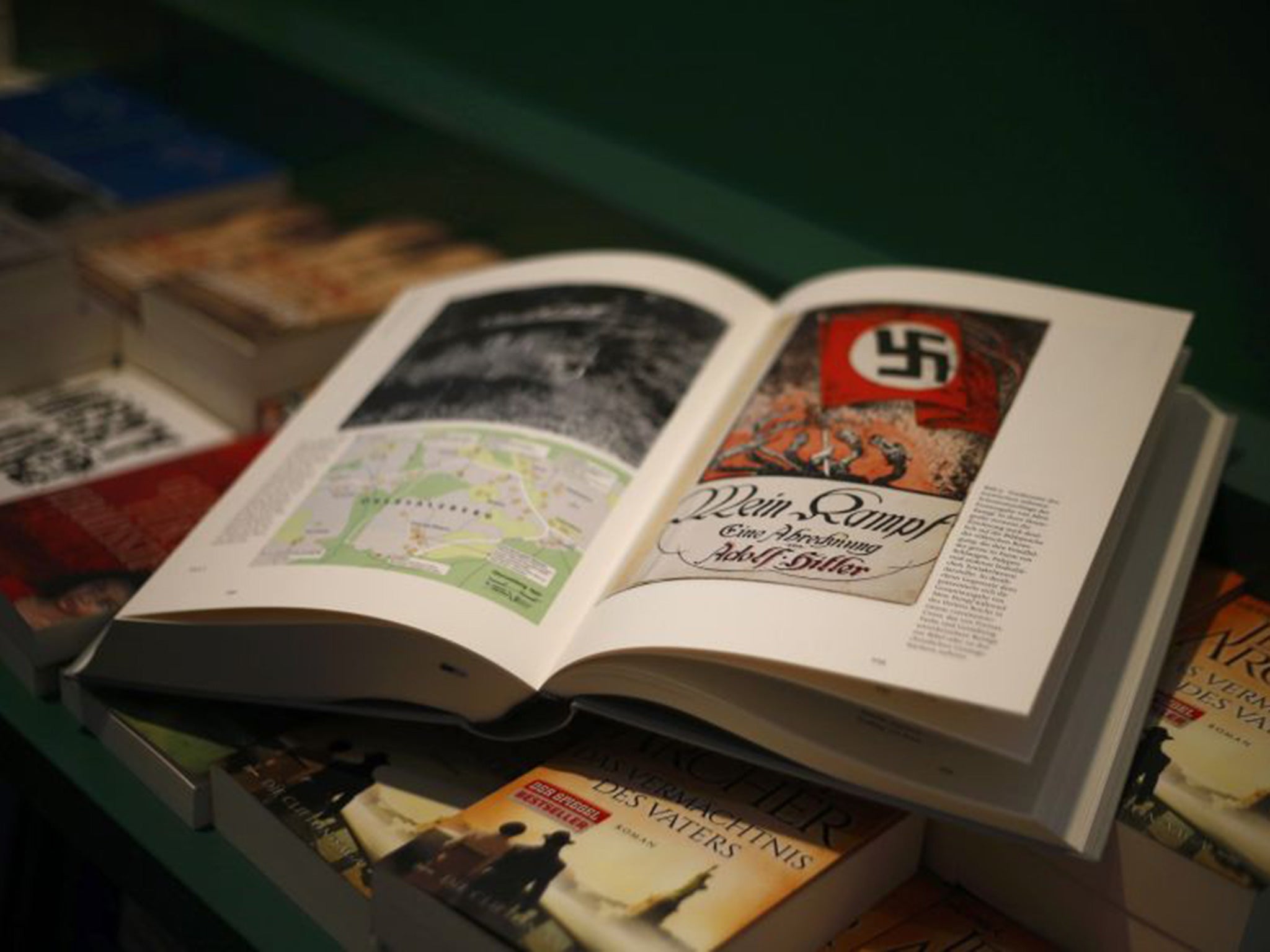Adolf Hitler's autobiography 'Mein Kampf' is back in print - and three times as big
After a 70-year ban in Germany, Hitler’s diatribe has gone on sale again, along with academic context

Your support helps us to tell the story
From reproductive rights to climate change to Big Tech, The Independent is on the ground when the story is developing. Whether it's investigating the financials of Elon Musk's pro-Trump PAC or producing our latest documentary, 'The A Word', which shines a light on the American women fighting for reproductive rights, we know how important it is to parse out the facts from the messaging.
At such a critical moment in US history, we need reporters on the ground. Your donation allows us to keep sending journalists to speak to both sides of the story.
The Independent is trusted by Americans across the entire political spectrum. And unlike many other quality news outlets, we choose not to lock Americans out of our reporting and analysis with paywalls. We believe quality journalism should be available to everyone, paid for by those who can afford it.
Your support makes all the difference.
It comes in two volumes and is 1,966 pages long; it weighs 10kg and it contains more than 3,500 largely academic footnotes. The long-awaited new German edition of Adolf Hitler’s anti-Semitic diatribe Mein Kampf is not the sort of work easily handed round at a political rally.
The book emerged from a 70-year ban in Germany today, going back on sale for the first time since 1945, despite its continued reputation as one the most pernicious pieces of writing ever to have emerged from the country.
Yet the new edition of the Nazi leader’s autobiographical and racist rant seems unlikely to inspire even the most ardent of Germany’s new generation of neo-Nazis or of its budding anti-immigration movements. If sheer weight and bulk were not a deterrent, the €59 (£44) price tag for the first print of 5,000 copies surely will be.
“Our aim is to debunk and demystify this book,” said Dr Christian Hartmann of Munich’s Insitute for Contemporary History, one of a team of historians who have spent three years preparing the “critical edition”. “We wanted to surround Hitler with our own words,” he said at a press launch.
For 70 years, the state of Bavaria, which owned the copyright, refused to allow it to be republished, but its copyright expired on 31 December. Most German Jewish organisations have welcomed the publication.
Andreas Wirsching, another of those involved, said the ending of the copyright left historians with a problem. “We could have simply ignored the book and done nothing – but we were convinced that we had to do something. We wanted to put Mein Kampf firmly in its historical context,” he said.
The critical edition, seen by The Independent, will delight academics but would challenge school pupils or the readers of popular historical novels. There are two pages of footnotes and comments to every half page of text.
A cursory glace shows that Hitler’s anti-Semitisim is omnipresent. Mein Kampf is packed with references to supposed sub-humans, such as “the black-haired Jew boy with an expression of Satanic joy” as he prepares to prey on an “unwitting” German maiden. But often the footnotes merely tell us that the term was a 19th-century cliché.
Professor Ian Kershaw, the British author of a two-volume biography of Hitler, who was in Munich for the launch, described the new edition as “excellent” and said it was long overdue. “There was never any sense in banning this book in the first place,” he said.
Subscribe to Independent Premium to bookmark this article
Want to bookmark your favourite articles and stories to read or reference later? Start your Independent Premium subscription today.
Join our commenting forum
Join thought-provoking conversations, follow other Independent readers and see their replies
Comments